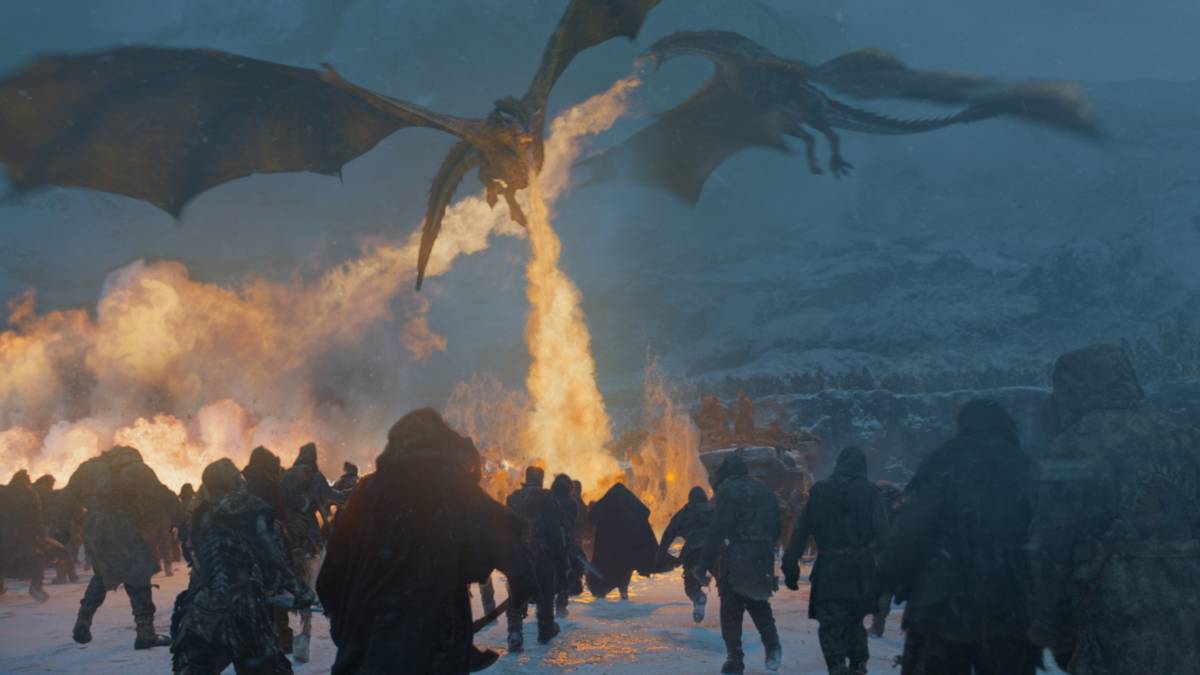The latest episode of Game of Thrones, ‘Beyond The Wall’, has finally punctured the over-inflated view that the vast majority of both the media and the fanbase have had of the show for a while now. Among an endless spiralling galaxy of examples – you’ve probably seen at least one on your outlet of choice – The Telegraph cites a ‘baffling plot hole’, Forbes ran an article on ‘the three biggest problems’ with the episode (particularly damning for one which only featured three of the major plotlines), The Onion reported that just as the show once moved past the books it has now moved beyond the scripts, and The Week goes so far as to claim ‘Game of Thrones has become a terrible show’.
A great deal of these articles cite, first and foremost, the implausibility of Daenerys crossing half the continent to come to Jon and the gang’s rescue. And certainly I made much of this in my review of the episode, estimating that by all known logic Jon’s party spent at least three days stranded without food or shelter before Daenerys got there. However, if it’s only now that the world’s various media outlets are sitting up and taking notice of the show’s somewhat loose attitude to physics and logistics, then they’re not doing their jobs.
We had a particularly galling example of this in the final episode of season six, where we had Varys start in Meereen, pop up in Dorne to get the Tyrells and the Sand Snakes onside, and then, finally, end the episode on the Greyjoy fleet ferrying Daenerys’s army from Meereen over to Westeros. At some point in all of that he wasted a trip, and possibly more than one. This entire journey – one of easily 4000 miles – took place over ten minutes of screentime.
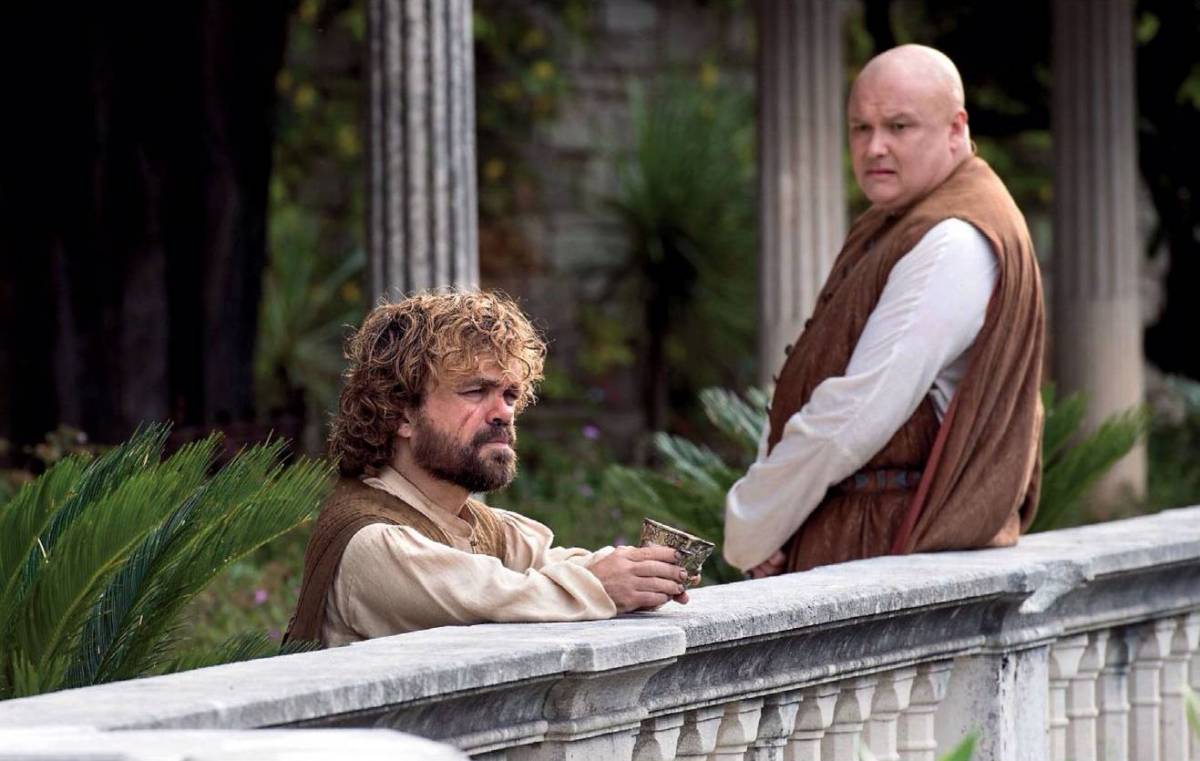
fanpop.com
And speaking of the Sand Snakes – because in any article picking apart the show’s flaws, they’re going to come up a lot – season five ended with them on the dock at Sunspear, watching Jamie, Myrcella, and Trystane sail off into the sunset (with Myrcella about to die of poison). Come the sixth season premiere, two of the Sand Snakes magically appeared aboard the boat to murder Trystane. Even though the boat was seemingly docked in King’s Landing at the time (although it’s hard to tell for sure), they apparently escaped back to Dorne with no issues – but then that makes sense, since they can now teleport.
Season five also gave us Littlefinger bouncing about Westeros like a pinball, one minute up in Winterfell, the next back in King’s Landing. While not so long a round trip as Varys’s antics mentioned above, the trip from Winterfell to King’s Landing is still a fair step – if you’ll remember, in season one an entire episode was devoted to the trip between them. And, come season six, Littlefinger was able to bring the entirety of the Vale’s forces past Moat Cailin (established as an impassable choke point) and up to Winterfell at short notice, just in time to swing the Battle of the Bastards.
(On a side note, it seems odd that characters in-universe have started using the phrase ‘Battle of the Bastards’. They might as well just call it ‘Bastardbowl’ and be done with it.)
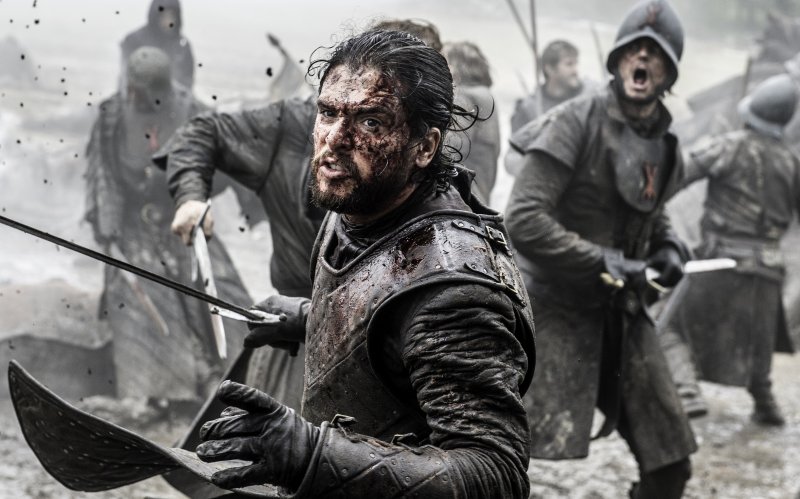
thedailybeast.com
While I don’t want to be that guy who witters on about how ‘actually, in the books…’, when all’s said and done this is an adaptation. Or rather, was an adaptation – the show’s decline basically parallels how far they’ve moved away from the books, and now they’re completely out of book material, having wrung out basically every last drop they possibly could.
None of this is to absolve Uncle George, who like a lot of writers has his own problems with scale (the most obvious example being Mance Rayder attacking the Wall, when wildings were somehow able to hit Nightswatchmen who were 700 feet above them with arrows), and whose plotlines have arguably gone off the rails in their own ways. Nevertheless, when the show tries to strike out on its own, it tends to go poorly.
First, we might as well talk about the Dorne plotline. And this isn’t just the Sand Snakes, despite that terrible fight scene with them, Jaime, and Bronn, and the notorious ‘bad pussy’ line being one of the few times the critics were able to find fault with the show before now. The real problem is two conspicuous character assassinations. The first is Ellaria, determined to murder Myrcella as tit-for-tat revenge, when her book counterpart – having seen Oberyn die and actually learned something from it – gave a speech against endless cycles of revenge, for the sake of her children’s safety.
The second is Arianne Martell, and the name may not be familiar, because she wasn’t even in the show despite the fact that she was meant to be the main character of the Dorne plotline. And she had her own plans for Myrcella – not to kill her, but to crown her, since under Dornish law, inheritance is gender-neutral, which would make Myrcella the monarch as she’s older than Tommen. This plot involved Arianne seducing the kingsguard who’d come to Dorne with Myrcella to guard her (keeping a princess guarded? What a concept!), and not just a kissy-kissy seduction, I mean a hot naked affair. (The show also left out Arianne’s brother Quentyn, but that’s another story.)
Now, why Game of Thrones decided to lean away from a plot that involved dynastic intrigue and sex appeal in favour of a plot that was universally hated and painted every non-white woman as interchangeable dimwitted psychotics, we may never know. (Seriously, the Sand Snakes were meant to have kind of a colour-coded Fox Force Five thing going on, instead of which we got essentially the same character in triplicate.) Suffice it to say, all their big talk about ‘women on top’ turned out to be just bluster when they got perilously close to actually depicting a woman on top.
Another good example of the show botching adaptation is Stannis’s plotline – mangled to the point that they now prefer to forget all about it, with Davos, his most trusted advisor, now barely remembering he existed. A point he brought up back in season 5 – that Dragonstone is chock-a-block with obsidian – was scratched out of everyone’s collective memory, because as we saw in this season, Sam had to rediscover it independently.
The fundamental error here is how the showrunners thought of the character – somehow picking up the idea that Stannis was mainly driven by ambition. Even taking the books completely out of the equation, by the facts put forward and the process of dynastic succession established in the show, Stannis was the rightful heir to the throne. This shouldn’t be remotely controversial. His claim wasn’t about ambition, it was about duty.
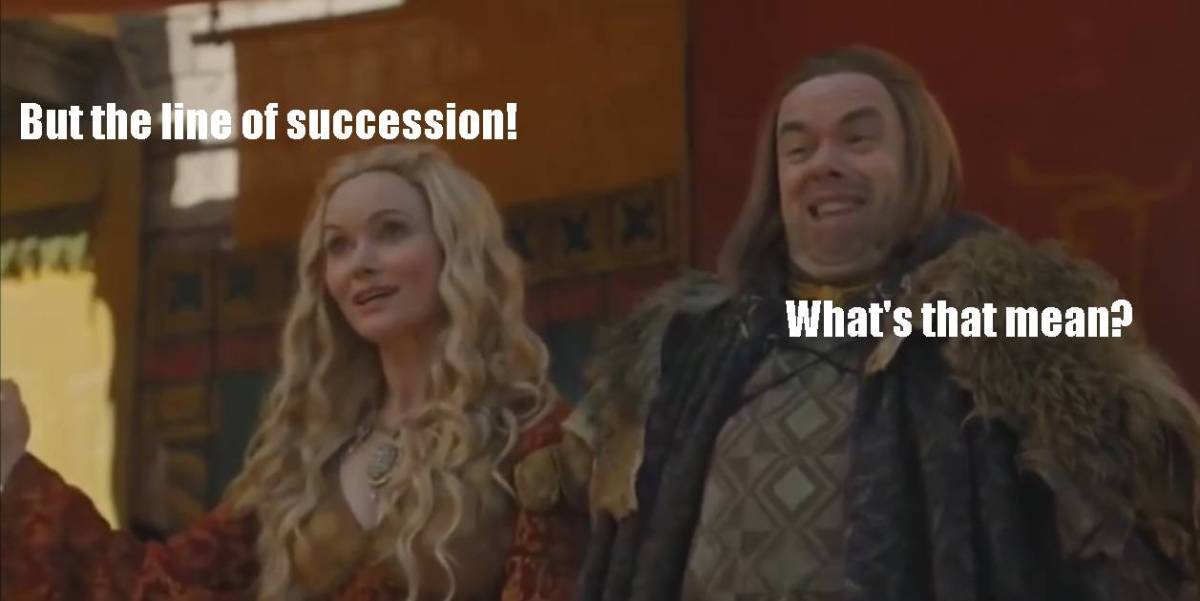
Part of the issue here was that the showrunners had bought into the hype around Stannis. In book/season 2, Stannis and Renly are clearly set up as archetypes of evil and good kings respectively. Stannis is a prickly guy who lives on a sinister island fortress, and his main advisors are a common-as-muck smuggler and a sexy foreign sorceress. Meanwhile, Renly’s a jolly type who the people love.
However, as established, Stannis is the legitimate heir, whereas Renly wants to do away with all that line of succession stuff, and rule based purely on force of arms (so, once he dies, there is no clear successor other than whoever’s got the biggest army, which almost certainly means another war). There’s precisely one person here who’s all about ambition, and it’s not Stannis.
Stannis’s eventual downfall illustrated just how much the showrunners disliked the character. After his army was crippled overnight by Ramsay Bolton and his twenty good men (a development which itself shows how much the showrunners loved Ramsay), he burnt his beloved daughter alive to clear up a minor snowstorm. As a result, his wife – who’d always hated their daughter – hung herself, which was presented less as a dramatic twist than as a punchline. After that, the battle went terribly, and Brienne turned up to murder him.
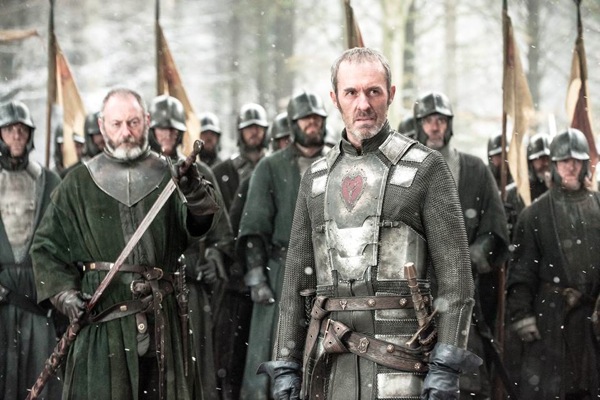
And since I mention her, Brienne and Jamie’s relationship is also a fine example of the show losing the plot. We get the occasional longing look – including, hilariously, Jamie getting all misty-eyed just seeing the Isle of Tarth – but absolutely no character development as a result of their time together. It was just a thing that happened.
After this, Brienne gets bounced around from plotline to plotline, with the only thing of note she achieves being killing Stannis to avenge her dead crush (and to do this, she abandons her plan to rescue Sansa). Part of this is due to Gwendoline Christie’s scheduling conflicts because of her role in The Force Awakens (in which she also basically did nothing), and part of it is because her subsequent plotline in the books is her trying to track down Sansa, which we know is a wild goose chase and as such is little more than a guided tour through how awful the war’s been for the general populace.
However, there’s no excuse for what happened with Jamie. In the books, Cersei is disgusted with his losing a hand, because he’s no longer basically her narcissistic gender-flipped fantasy, and he discovers the various affairs she’s had in the meantime. This leads to them growing apart, and, crucially, his realisation of how crazy Cersei’s getting – something else, incidentally, the show bungles, with Cersei being largely reasonable from season 4 onwards until they have her abruptly become a supervillain.
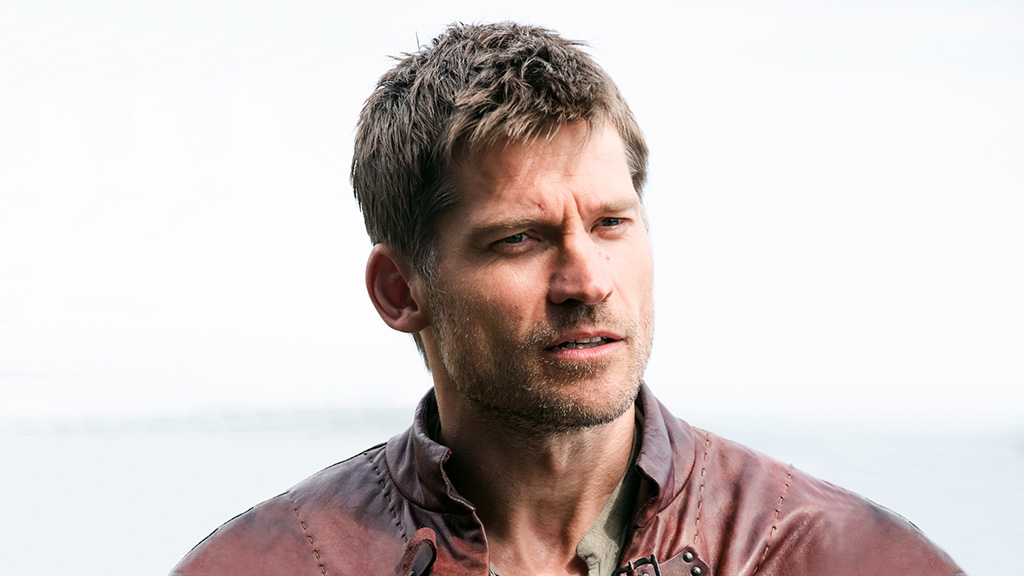
HBO
Cersei crossing the threshold into cartoonish supervillainy involved her using wildfire to blow up a large chunk of King’s Landing. It was the thought that this might happen that prompted Jaime to turn on and kill the king he’d sworn to protect with his life. Here, though, when it’s actually happened, when his worst nightmare has come to life? No such reaction beyond Jaime looking mildly concerned.
Now, it’s probable that Jaime will eventually turn on Cersei – because that’s the way the books are heading, and the show is still hitting the major plot points, skidding wildly from one to the next with a whole lot of filler in between (fermented crab, anyone?). As it is in the show, it’ll come out of precisely nowhere, the man who was willing to fight and die for her in one episode suddenly strangling her in the next.
Granted, that last part is just speculation. But all the problems everyone’s suddenly identifying in Game of Thrones – people moving instantly from place to place, plotlines that make the opposite of sense, and a focus on big shock moments to the detriment of all else – have been there for years, plain as day for anyone willing to look.
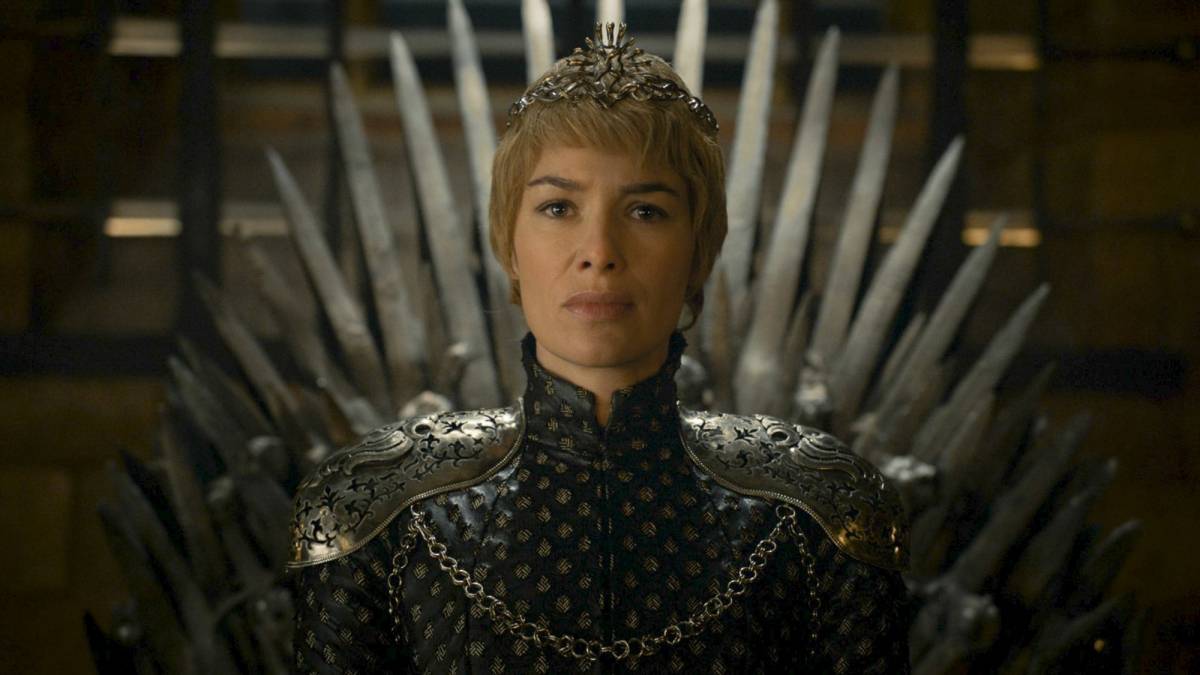
There’s a comparison to be made here with The Simpsons, which suffered its own decline – by most people’s reckoning, about season 10 – yet there was and is a huge amount of people, both media commentators and ordinary blokes, barefacedly denying any such decline had taken place. The claims were that ‘it’s as good as it’s ever been’, ‘you just got older and more cynical’, and, if backed into a corner – and this one is very commonly bandied about Game of Thrones as well, especially recently – ‘even if it’s gotten worse, it’s still one of the best things on TV’.
Absolutely preposterous! And particularly so given HBO’s previous offerings. Game of Thrones is talked up as a swords-and-sorcery version of The Sopranos or The Wire, and the first few seasons bore that out, but the cracks started to show very quickly. The Sopranos, towards the end, had its moments – more than just moments – of self-indulgent pseudo-deep tosh, but it never did anything like have Meadow marry into a rival mafia family who had offed Carmela and Tony Jr., or have Tony and the gang ditch their battle plan five seconds into a mob war, or use the phrase ‘bad pussy’ remotely seriously.
To be fair to everyone who’s suddenly realised the show’s not as good as they’ve been claiming for years, Daenerys teleporting North of the Wall was clearly just the spark. There was plenty of explosive material in place for that to make go off, one of the first and foremost being the show’s refusal to have main characters die – see Jon in ‘Beyond The Wall’, dunked in freezing water and then Deus Ex Machina’d to safety, or Jaime in ‘The Spoils of War’/’Eastwatch’, managing to survive a fall in a river while in full plate armour.
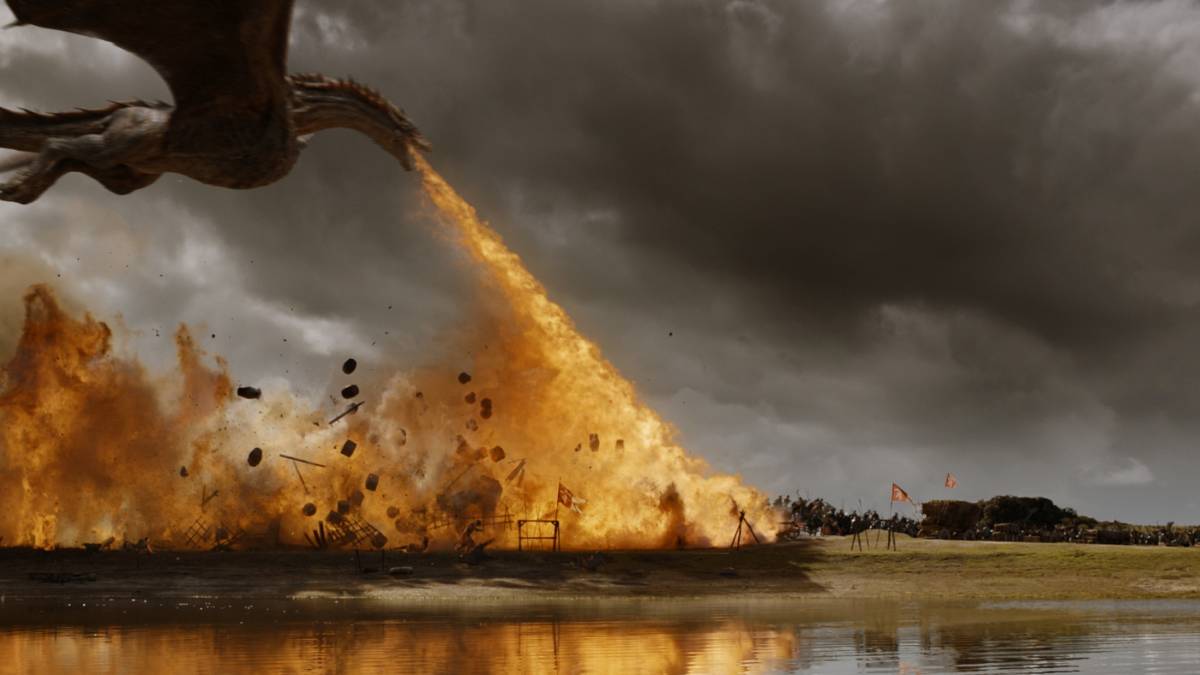
This sort of thing stands out because it’s a betrayal of what made Game of Thrones/A Song of Ice and Fire so successful in the first place, that it wasn’t willing to cheat to help the heroes. Ned Stark’s death was a deconstruction of all the moments in fantasy stories where the hero is saved in the nick of time – ditto the Red Wedding for all the stories where sons avenge their fathers.
However, as many have pointed out, the show degraded from not cheating to help the heroes, to very actively cheating to help the villains – because that gives far more opportunity to have moments of shock. The Sand Snakes (I know, them again) seized power in Dorne by murdering their Lord Paramount, and faced zero consequences for it, even though they did it in front of a room full of guards.
The most obvious example, though, was Ramsay Bolton. We’ve already mentioned his twenty good men, an incident which took place entirely offscreen, and, like the Sand Snakes, he murdered his liegelord (and father) and was rewarded for it, not just with a promotion but with Smalljon Umber inexplicably trusting him more because of it. There was the time he fought off Yara and ‘the fifty best killers in the iron islands’ while half-naked, the time he magically knew Osha was going to kill him, and his eventual downfall needed Jon to be rescued in the nick of time by the Vale’s army.

Now, the question you may be internally screaming at me after all this is ‘why the hell do you still watch it?’ – which, now, you can direct squarely at the media hivemind as well. And there’s a lot of reasons. I enjoyed the first few season, I enjoyed the books. After watching something full of power-hungry Machiavellian figures and political intrigue like Veep, it’s nice to have something you can wind down with and have a good chuckle over.
And, to be perfectly honest, I like the spectacle. South Park once said something to the effect that the dragons and the army of ice zombies are definitely on their way, they’re coming any minute now, and yes, now they’re not just here but fighting each other. It’s a spot of fun, it’s just it would be even better if any of the plot elements around it made sense. And the critical commentary surrounding it would be even better if they’d pull their fingers out and offer some actual criticism before we have ravens moving fast enough to get into a low earth orbit.
Some of the coverage you find on Cultured Vultures contains affiliate links, which provide us with small commissions based on purchases made from visiting our site.
